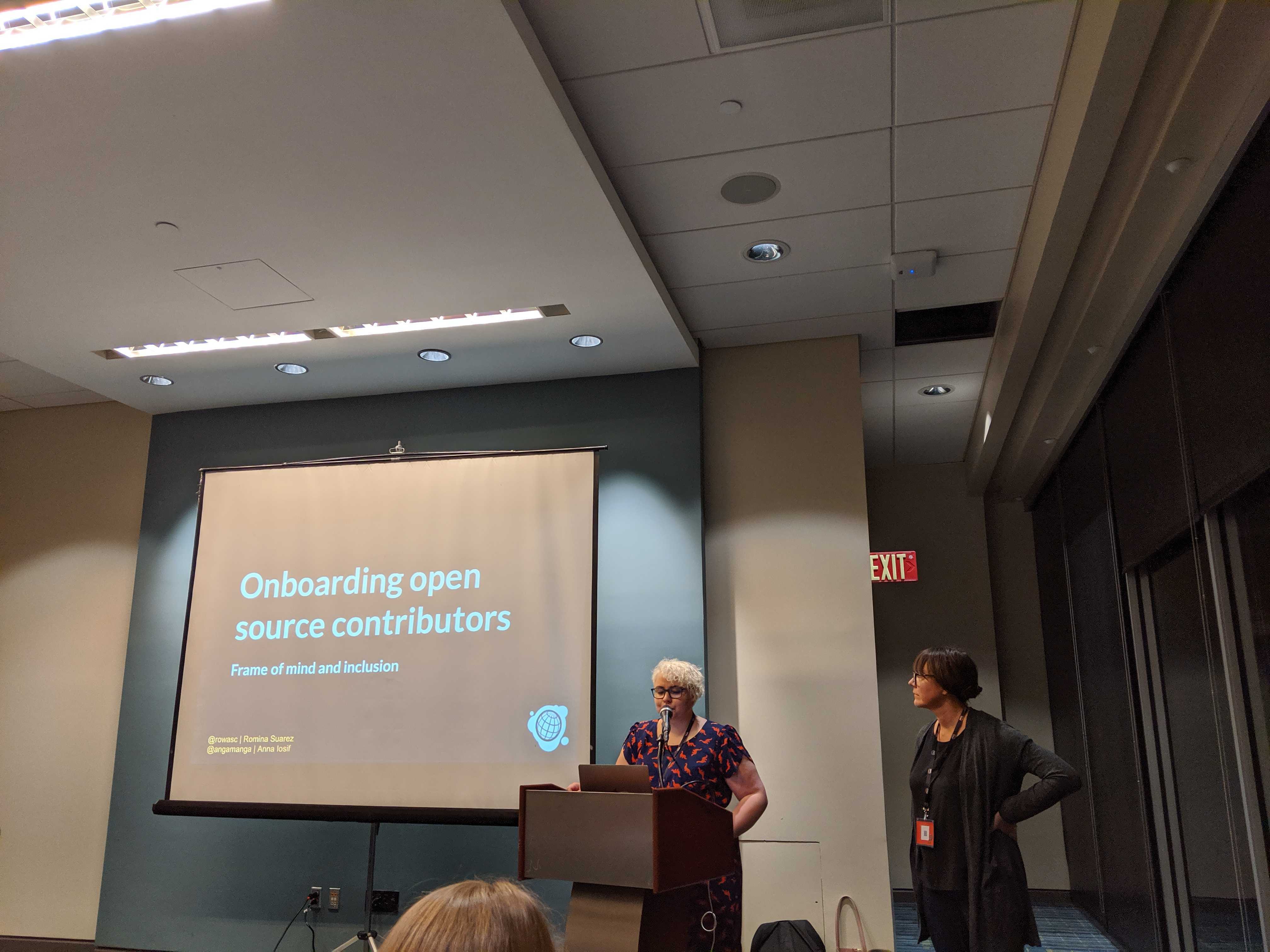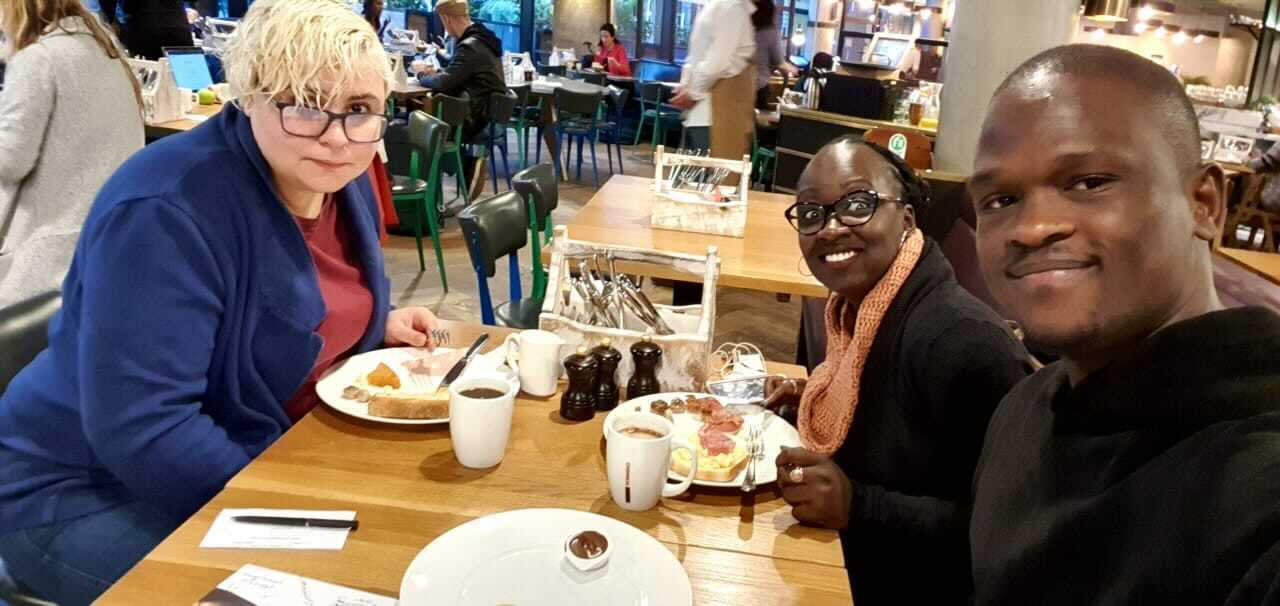I'm Romina, AKA @rowasc. I joined Ushahidi as a software developer on September 1st, 2017. My last day as CTO will be January 29th, 2021.
By September 1st, 2017, Kenyans were getting ready for a second round of their presidential elections, which meant our team had their hands full preparing the Uchaguzi deployment to help understand and act on the situation on the ground. It was an interesting time to join, and seeing the Uchaguzi team in action made the impact of our work a lot more clear to me. Years later, I'd use many of the things we learned from Uchaguzi to build (and execute on) some of our product roadmap. The most recent feature we launched is called Entity Translations, and it was inspired by the workflow hacks the Uchaguzi team had to set up to cope with multilingual deployments needs. Without a content translation system that covered Surveys, Categories and Posts, this often meant copy-pasting and translating into description fields or recreating entire surveys into different languages.
Less than two years after I joined, Angela was offered the Executive Director position. Soon after, she called me to ask if I'd be willing to take the CTO position. I was. Irene (CFO) came back full time soon after. Declan was hired as COO around the same time. Together, we became a new executive team. To say it’s been a privilege to work with them would be an understatement.

We see technology, ops and finance as critical arms of the organization that must work in harmony. Not just co-exist. Not just deal with each other. Finance, Ops, and Technology must collaborate. As members of the executive team, we cultivated productive peer relationships based on trust and respect. We all had experience seeing executive teams act like they were working against each other, putting their egos ahead of the needs of the organization, acting as if each of them was a different company. We wanted a team. Our relationship as a new team began by setting clear expectations and healthy boundaries.
It isn't always easy to live up to our ideals, but it helps to try. I know that when we meet, we will all be heard. Our concerns and ideas won’t be ignored. We will be asked about our goals, and how people in our teams are feeling about the org. We all tend to have strong opinions on some topics, and we aren’t exactly shy about sharing them; this means we had to quickly get comfortable as new team members with having disagreements and resolving them peacefully. More often than not the discussion quickly leads us to discover something we hadn't thought about, and I've been known to fight for something for weeks only to jump to the opposite side when someone gives a convincing argument and data to support it. This leads to better outcomes, since all of us come at problems from very different angles and experience, but from time to time there’s a situation where we really can’t agree. When that happens, we are used to deferring to the other person’s expertise and getting on board with their plan.
It’s easy to disagree and commit when you have a high trust team and clear boundaries
As we ramped up, we knew we'd have a big task ahead of us. Not everything was clear, and we were shaving off a lot of institutional assumptions about who we were and who we wanted to be. What we wanted was more impact for our product’s users. Reliable services. Better response times. More engagement in open source. Ensuring our users feedback is heard and acted upon. We wanted to stop centering white, global north narratives and to have diverse perspectives be heard. For us, focusing on the needs and goals of people in the global south was a critical part of our vision. We wanted stability for our team, and to cultivate a work environment where all team members felt included and valued. We wanted to hear from everyone, and listen more.
More than anything else, we wanted to ensure the Ushahidi Platform would be available to all who need it.
Early on, I asked Angela to put me in charge of Community & Engagement so that technology, product & support were both my areas of accountability. For years, I had seen the folks doing support and engagement struggle to be heard. Ensuring that never happened again would be my first goal. It was a big ask; Angela had led Community for years, and I had never done it before. In the end, my most convincing argument was that if it all went down in flames, at least she'd know who to fire. By working closely with Cecilia (our Community Advocate - previously Community Support Officer), I was able to have a lot more visibility on community and user requests; more importantly, by having Community and Engagement be a responsibility of the CTO for the time being, I had set myself to be more accountable for the success of our users.
I decided my first year as CTO would be about making a few strategic changes in our product to pave the road for more changes in the future. I also wanted to rethink some aspects of our organization and scale back our product offerings. Furthermore, I knew our only chance of success depended on creating excellent working relationships between Programs and Technology, since so much of our work depends on that linkage. I didn't know it yet, but we were about to enter into a pandemic that would have all our lives disrupted while increasing the need for the Ushahidi Platform around the world. Our hiring plans would get disrupted. Support requests would flood in.
Anything other than a flexible roadmap with plenty of wiggle room would have set engineering and support up for failure.
Every member of our team was shouldering an enormous amount of work last year, and asking more of them would be unfair. I did my best to keep us afloat, cutting scope, moving timelines, negotiating features down. I dropped a few balls (I swear, I meant to answer that email, whoever you are!).
As it became clear we wouldn't be able to hire for engineering and design last year, I gave up on some projects and pushed them to 2021; despite this, we were constantly coming up short.
For me, 2020 was defined by many international crises, personal emergencies, and community needs. But it was also defined by the growth of members of the team who showed me there was a lot more they could do if we gave them the power to make important decisions. By their commitment to justice and to have hard conversations. Our team's willingness to adapt and assist others made it possible for Ushahidi to support around 1300 new Ushahidi deployments with a very limited number of staff. I'm grateful to every one of them for their trust, their commitment to justice, and the care they put into supporting each other through messy times.

In August 2020, I took two weeks off to try to recover from a long year, reflect on the goals I had set for 2020, and think about my own career. Two months later, I gave notice. Angela and I explored many alternatives for me to stay, but it was clear they all came with a high cost to the team's health and the performance of our projects. I didn't think it was worth risking it, because my vacation solidified the idea that our next few years would be best executed by a different leader.
To the best of my ability, I set down foundations that will enable the next CTO to build the next 10 years of Ushahidi. Unfortunately, I also realized that person cannot be me. I thrive when there’s a Romina-shaped-hole in a team, and thanks to the work we did in 2020, we've reached the point where the things I'm really passionate about aren't going to be the focus of the role.
Starting Jan 30th, David Losada will be taking on the role of CTO. I will be leaving Ushahidi to take a break while I think of what's next.
My decision to leave was hard, but it felt right. I'm grateful that David accepted our offer, because it’d be impossible to find someone who knows the organization as he does. Onboarding a CTO that doesn’t know Ushahidi would have been much harder, and we would be risking bringing someone on who could undo a lot of the work we’ve done together this year. My plan required David to say yes.
David is a brilliant engineer, he understands the value of a strong community around our tools, and believes that partnerships with other organizations will benefit Ushahidi and our community. He is one of the longest tenured members on the team and a well regarded technology leader. He's just as comfortable talking with a user as he is digging through server logs to hunt my bugs.
2020 would have been a lot harder without him keeping our servers alive, making our tech operations smooth with ever-expanding automation, and ensuring critical needs were visible and acted on.
Leaving a leadership position is never easy. You want to make the transition smooth, to ensure the team will be taken care of. You want to know the tech will be handled and that the communities that depend on your products will be well served.
I leave knowing all of this is true.
I plan to take some time to rest up, have some fun, and think of what's next for my career. The impact Ushahidi had in my career and on the way I see the world will be felt for many years.
The bar has been set very high by the incredibly talented and kind humans that I've had the pleasure to work with here. I couldn't be prouder of what we've built together. I will be cheering for you from outside.
You can reach me at rowasc@hey.com, or as @rowasc on Twitter.
